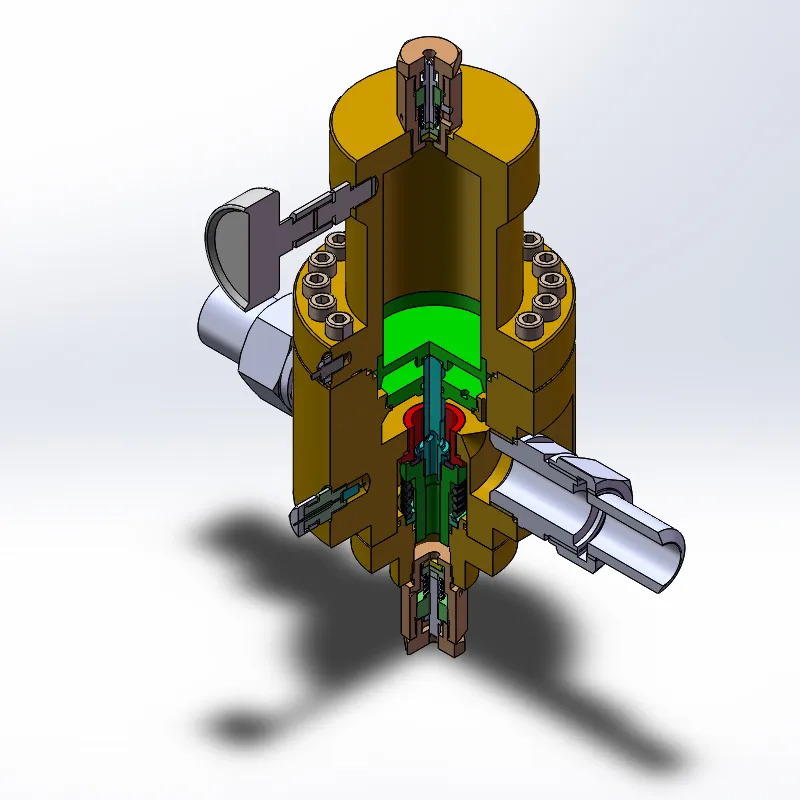
Nov . 26, 2024 16:53
Back to list
Exploring Effective Natural Gas Filtration Techniques for Enhanced Energy Efficiency
Natural Gas Filtration Ensuring Clean and Efficient Energy
Natural gas, a vital energy source for heating, cooking, and electricity generation, requires thorough filtration to ensure its purity and effectiveness. As the demand for cleaner energy continues to rise, the importance of natural gas filtration becomes increasingly significant. This process is essential not only for providing safe and efficient energy but also for reducing environmental impacts and enhancing operational performance in various industries.
Understanding Natural Gas Filtration
Natural gas is extracted from underground reserves and is composed mainly of methane, alongside other hydrocarbons, water vapor, carbon dioxide, nitrogen, and trace impurities. Before natural gas can be delivered to consumers, it must undergo a series of filtration processes to remove these unwanted components. Effective filtration is crucial because impurities can affect combustion efficiency, lead to operational problems in pipelines and equipment, and pose health risks to end-users.
The filtration process typically involves several stages. Initially, physical filtration removes larger particles and debris using various filtering mechanisms such as mesh screens or cyclonic separators. Following this, finer filters may be applied to eliminate smaller particulates and liquid contents like water and hydrocarbons. Advanced filtration technologies, including coalescing filters and activated carbon adsorbers, are also used to remove gaseous contaminants and odorants, ensuring that the natural gas meets quality standards set by regulatory bodies.
The Importance of Filtration
1. Operational Efficiency Clean natural gas ensures optimal performance of burners and combustion devices. Impurities can lead to incomplete combustion, reducing energy efficiency and increasing carbon emissions. By filtering out these contaminants, natural gas systems operate more efficiently, minimizing waste and lowering costs for consumers.
2. Equipment Protection Contaminants can cause significant damage to pipelines and processing equipment. For example, water and particulates can lead to corrosion and blockages, resulting in costly repairs and downtime. Proper filtration protects infrastructure, extending the lifespan of equipment and reducing maintenance costs.
natural gas filtration

3. Safety and Compliance Natural gas must meet strict safety standards to prevent health hazards. Contaminated gas can lead to dangerous emissions and risks of explosions. Through effective filtration, natural gas suppliers can comply with regulatory requirements while ensuring the safety of residential and industrial users.
4. Environmental Impact The filtration of natural gas is crucial for minimizing its environmental footprint. By removing impurities, the combustion of filtered natural gas releases lower levels of harmful pollutants such as nitrogen oxides and volatile organic compounds. This contributes to cleaner air quality and helps combat climate change.
Innovations in Filtration Technology
Recent advancements in filtration technology have significantly improved the efficiency and effectiveness of natural gas processing. Innovations such as membrane separation, which utilizes selective permeability to separate impurities from natural gas, are gaining traction. Additionally, the development of nanotechnology-based filters allows for the removal of even the smallest contaminants, further enhancing gas purity.
Moreover, automation and smart monitoring systems are increasingly being integrated into filtration processes. These systems enable real-time analysis of gas quality and the performance of filtration equipment, leading to better maintenance practices and reduced operational costs.
Conclusion
As the world moves toward a more sustainable and clean-energy future, the importance of natural gas filtration cannot be overstated. Ensuring the purity of natural gas through efficient filtration processes is essential for operational performance, safety, and environmental protection. With ongoing innovations in filtration technology, the natural gas industry is poised to meet the growing demand for clean energy while contributing to a healthier planet. Proper focus on this critical area will not only benefit energy providers but also consumers and the environment as a whole.
Latest news
-
Safety Valve Spring-Loaded Design Overpressure ProtectionNewsJul.25,2025
-
Precision Voltage Regulator AC5 Accuracy Grade PerformanceNewsJul.25,2025
-
Natural Gas Pressure Regulating Skid Industrial Pipeline ApplicationsNewsJul.25,2025
-
Natural Gas Filter Stainless Steel Mesh Element DesignNewsJul.25,2025
-
Gas Pressure Regulator Valve Direct-Acting Spring-Loaded DesignNewsJul.25,2025
-
Decompression Equipment Multi-Stage Heat Exchange System DesignNewsJul.25,2025

